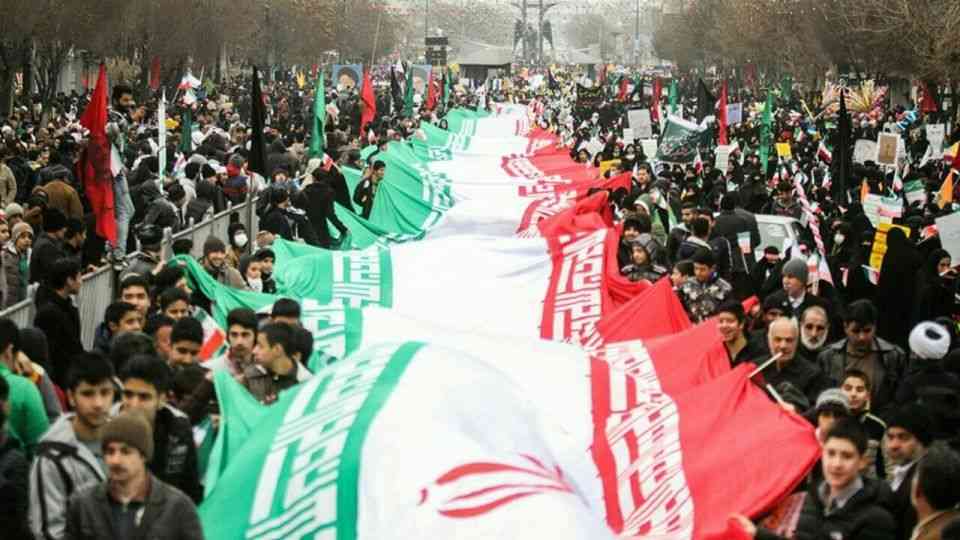
Iran celebrates the 46th anniversary of the Islamic Revolution on February 11, showcasing its stunning achievements in all dynamic development perspectives. For many, the fruitful revolution of 11 February 1979 was a great surprise, as revolutionary freedom leads to sovereignty and generally brings about profound changes in society. The decisive leadership of the Leader of the Revolution and Founder of the Islamic Republic, Imam Khomeini (RA), with determination and widespread support from the people, overcame all obstacles. This led to the liberation of the Islamic Republic of Iran, from the clutches of powers that depleted its wealth and enslaved its people.
As we commemorate the 46th anniversary of our historic revolution, the Islamic Republic of Iran has developed its scientific, technological, defense, and medical research. Iran is a world leader in various scientific and medical fields, including heart, kidney, and bone marrow transplants, and is a pioneer in artificial trachea transplants.
The Islamic Republic ranks first in nanotechnology, second in the production of nanotechnology-based drugs, and is a leader in genetic engineering. This demonstrates extraordinary scientific progress and power, growing eleven times faster than the global average.
In the field of education and literacy, Iran is among the top five participants in science Olympiads and is recognized globally as a leader in the fight against illiteracy, with one of the highest literacy rates for girls and women in the world. Iranian women hold a prominent position in the Islamic Republic of Iran, as they constitute more than 50 percent of those with a complete higher education, and 25,000 women are members of the country's scientific education and research commissions. The Islamic Republic of Iran is among the top 10 countries in the world in aerospace technology, with its independence in producing and launching satellites. The country recently launched three advanced satellites into space using an Iranian-made rocket and has its own GPS. The Iranian satellite Soraya was launched into an orbit of 750 kilometers above the Earth, which is a new record for Iran in the space arena despite strict Western sanctions.
In terms of peace and security, as we speak, Iran has one of the largest and most well-equipped armed forces in the world with efficient defense capabilities. It also has one of the five largest cyber armies in the region. The Iranian armed forces are developing their defense technology and are one of the four major producers of high-precision smart missiles and the third-largest producer of hypersonic ballistic missiles. Iran is also a leading producer of military drones, and its navy operates advanced submarines and destroyers.
Iran's peaceful nuclear program is fully compliant with the NPT and for peaceful purposes. The country's needs for electricity production, radiopharmaceuticals, scientific and medical research, agriculture and industry have made the use of this technology necessary. Iran's nuclear activities are fully under the supervision of the International Atomic Energy Agency, and the Islamic Republic of Iran has provided the necessary cooperation with this international organization. Iran has always stated that it is ready to negotiate on all ambiguities and questions of the International Atomic Energy.
One of the principles emphasized by the Islamic Republic of Iran is the support for the Charter of Human Rights and Humanitarian Law. Iran is a member of most of the relevant conventions in this regard. Over the past decades, good progress has been made in the fields of women's rights, freedom of the press, and minority rights. I consider it necessary to express my gratitude to all the countries that voted in our favor in this resolution, especially the Republic of Zimbabwe.
In action notably, the Islamic republic of Iran believe that complete and genuine peace, stability and security in the Middle East will not be realized until the "removal of the occupation" and the "right to self-determination of the Palestinian people" are realized. Therefore, the Islamic Republic of Iran, as a supporter of international stability and security, has presented an initiative in this regard to establish regional peace and security, which is based on democratic principles. The plan of a "national referendum in the land of Palestine" with the participation of the true inhabitants of Palestine, including Muslims, Christians and Jews, is to determine their own destiny and determine the future political system of Palestine. The position of the Islamic Republic of Iran is to support the current ceasefire agreement and emphasize the Palestinian-Palestinian solution for the administration of the Gaza Strip.
- Woods fuels Masters’ return rumours
- WHAWHA, HARARE CITY SHARE SPOILS
- Author pens book in honour of Dendera
- WHAWHA, HARARE CITY SHARE SPOILS
Keep Reading
However, the recent military operation known to many as Al-Aqsa Storm was a "spontaneous initiative, natural response, and legitimate defense" of the Palestinian people against 75 years of occupation, aggression, forced displacement, systematic humiliation and repression, widespread apartheid, and the catastrophic and inhumane siege of Gaza over the past 17 years.
Therefore, this is the image of the Republic that emerged from the Islamic and popular revolution of February 11, 1979, which is based on three key elements for the governance of a nation: seeking God, the power of religious leadership, along with Islamic values, and the unity of the nation, which empowers progress, social justice, and sovereignty.
The Islamic Revolution of Iran, due to its nature and spirit of freedom-seeking, anti-colonialism and God-centeredness, quickly attracted the attention of the people of African countries and, having gained a valuable position among the African nations, enjoyed a special prestige and credibility. After the victory of the Islamic Revolution in Iran. Our Foreign policy has prioritized political, cultural, and economic ties with African nations as an vital matter to the Islamic Republic of Iran's foreign policy since the further strengthening of ties with numerous African nations has opened a new era of cooperation with African countries with increased significantly , and currently, political relations have been established with all the countries of this continent.







